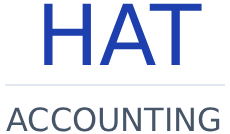Effective cash flow management is critical for consulting firms, particularly as payments may be delayed or project timelines extend. A healthy cash flow ensures that you can cover operating expenses, pay employees, and invest in future projects. In this article, we’ll explore key strategies for managing cash flow in a consulting firm and maintaining financial stability.
1. Create a Cash Flow Forecast
A cash flow forecast provides a snapshot of your expected income and expenses over a specific period. By forecasting cash inflows (from client payments) and outflows (for overhead costs, salaries, etc.), you can identify potential shortfalls and make proactive decisions to avoid financial strain. Regular updates to your forecast will allow you to stay ahead of cash flow fluctuations.
2. Manage Client Payment Terms
Consulting firms often face delayed payments, especially if you offer services on a project basis. To combat this, establish clear payment terms with clients from the outset. Consider requiring upfront deposits, progress payments at project milestones, or shorter payment deadlines to maintain consistent cash flow.
3. Monitor and Control Operating Expenses
Controlling your operating expenses is crucial for managing cash flow. Regularly assess your overhead costs, such as office space, subscriptions, or software licenses, and ensure they align with your revenue. Cutting unnecessary expenses and optimizing operational efficiency can free up more cash for reinvestment.
4. Build a Cash Reserve
Having a cash reserve or emergency fund is an essential strategy for managing unexpected expenses or periods of low cash flow. Aim to save at least three to six months of operating expenses in a separate account to provide a cushion during slower periods or project delays.
5. Use Accounting Software for Real-Time Cash Flow Tracking
Real-time cash flow tracking can help you identify potential issues before they become a problem. Cloud-based accounting software allows you to track your cash flow in real time and generate reports on outstanding invoices, upcoming expenses, and available cash. This transparency can help you make informed decisions about when to take on new projects or hire additional staff.
Conclusion
Managing cash flow is vital for the longevity of your consulting firm. By forecasting cash flow, managing client payments, and keeping operating expenses under control, you can ensure that your business remains financially healthy. With the right tools and strategies in place, you’ll be better equipped to handle fluctuations in cash flow and stay on top of your finances.





